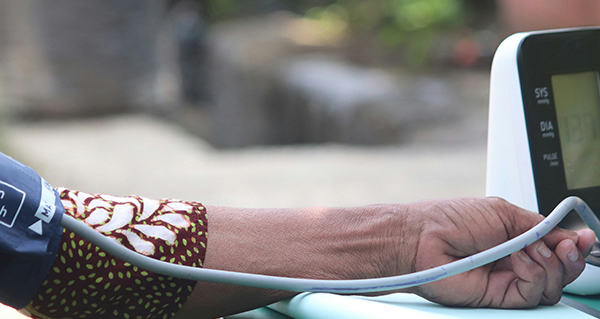About the Program
The one-year in-person fellowship program in Quality and Safety in Women’s Health is the first of its kind in the country; Duke Ob/Gyn trained its first fellow during the 2022-23 academic year. The program's goal is to train obstetrician/gynecologists and subspecialists to improve health care through an understanding of the principles, design and conduct of quality improvement (QI) and patient safety initiatives. Graduates of this program will have the knowledge and experience to become leaders in quality and safety in women’s health care. Graduates should expect to assume formal quality and safety leadership roles in their next appointments.
The program accepts one fellow per year and will provide training in the areas of quality improvement, patient safety and practice-based improvement.
Key Personnel

Program Director, Quality and Safety Fellowship
Professor, Division of Gynecologic Oncology

E.C. Hamblen Distinguished Professor of Obstetrics and Gynecology
and Interim Chair

Manager of Quality and Safety
Department of Obstetrics and Gynecology
Contact

Please send questions to Cescille Gesher, Quality and Safety Fellowship Coordinator, at qualityfellowship@duke.edu.
Fellow's Project Wins Kirkland Award, Work Continues

Hypertensive Disorders of Pregnancy (HDP) are the second leading cause of maternal mortality in the United States and are a major contributor to postpartum deaths. Current recommendations are for clinical follow up with assessment of blood pressure within three days after discharge for severe HDP, and no later than seven to 10 days after delivery for all patients with HDP; however, at Duke, this was only occurring 40% of the time.
As part of Duke's commitment to reduce maternal morbidity by 50% by 2025, a team of interdisciplinary collaborators from the Duke University Health System, led by former Quality and Safety in Women’s Health fellow Kathleen Zacherl, MD, implemented a multi-pronged set of interventions to increase the percentage of postpartum follow-up blood pressure checks from 40% to 70% in patients with HDP at Duke University Hospital. The goal was implementation within nine months, which was achieved.
The project received the Rebecca Kirkland Award at the 2023 Duke Health Quality and Safety Conference. The abstract "Ensuring safe discharge: A quality improvement initiative for postpartum hypertensive patients" was presented at the conference.
Progress is making an impact
Interventions to date include standardizing education, developing tip sheets, implementing new SmartPhrases, standardizing visit types, emphasizing telehealth over in-person visits and ensuring education is available in multiple languages. Thus far, the results have been remarkable, with an increase in the rate of completed visits for blood pressure checks within seven days of discharge to 66% — just shy of the goal.
Exciting future interventions that the team is working on include direct scheduling by obstetrics unit staff and remote blood pressure monitoring using an innovative patient platform, which has been implemented at Duke University Hospital and is being trialed at Duke Regional Hospital.